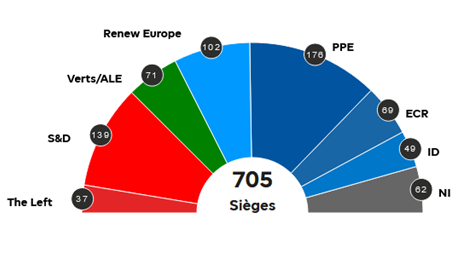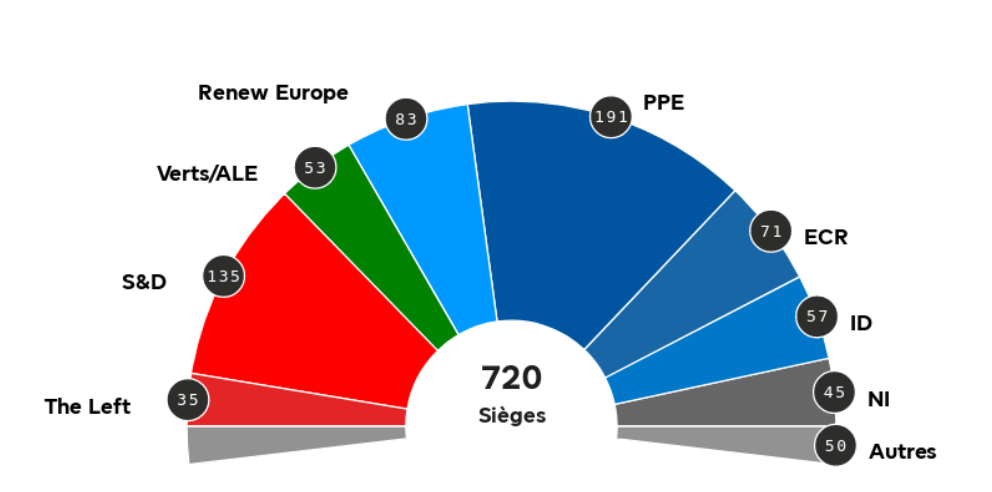June 2024: A new legislative term without renewal (phew!)
Policy Op-ed
All the forecasts predicted an electoral disaster that would see the extreme right flood the European Parliament. Fortunately, this did not happen. Instead, a relatively stable European Parliament will preside over the new legislative term. We say relatively because “Green Deal bashing” has taken its toll on the Green group. Having 20 fewer MEPs, according to the latest estimates, is a big loss. This group has been a tireless advocate for climate legislation over the past three legislative terms.


The political realities of the 27 countries are very different and analysing them requires nuance. In an excellent survey of Euroscepticism in Europe by Le Monde, based on regional data, the authors draw a very different map of the Eurosceptic vote. It’s not “the Hungarians” (another piece of good news from these elections, with Victor Orban’s weak performance) who are voting against Europe, or the poorer workers of southern Italy; it’s the regions where the sense of decline is most widespread. For the authors, the other explanatory factor is the feeling of being despised by out-of-touch elites, of not being taken into account in decision-making.
This has little to do with the Green Deal, as Laurence Taubiana points out: it’s all about purchasing power and energy prices. The link with feelings of being ignored or oppressed has been outrageously exploited in the campaign against an elite who claim that peri-urban areas should install heat pumps as the only answer to exorbitant energy costs.
In a recent interview entitled “Why does green set everything ablaze?”, Jean-Marc Jancovici refers to the results of the Citizens’ Convention on Climate (organised in France in 2020). He notes that citizens were quick to point out the inconsistencies in the “political media” discourse, that the proposed transitions cannot ignore the physical world, and that it is this “impossible” discourse that creates a sense of anxiety about the future, a feeling that the ruling elites are out of touch and therefore incapable of leading us.
We need to address the feelings of decline and disenfranchisement in order to counter plans for “anti-cohesion” and “anti-terrestrial” societies in the long term, plans for a return to national borders. It is in the face of the inconsistencies of a political discourse that would have us believe that anything is possible, without taking into account the physical limits of our terrestrial ecosystem, that we must oppose realistic trajectories.
To achieve this, each region should organise a citizens’ convention to discuss the possibilities for the future!
And what if the worst thing was not the colour of the European Parliament, but the tendency to leave European policies largely unchanged? We need to use this stability to strengthen democracy and get Europe’s citizens more involved.

